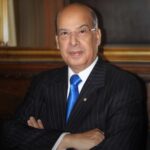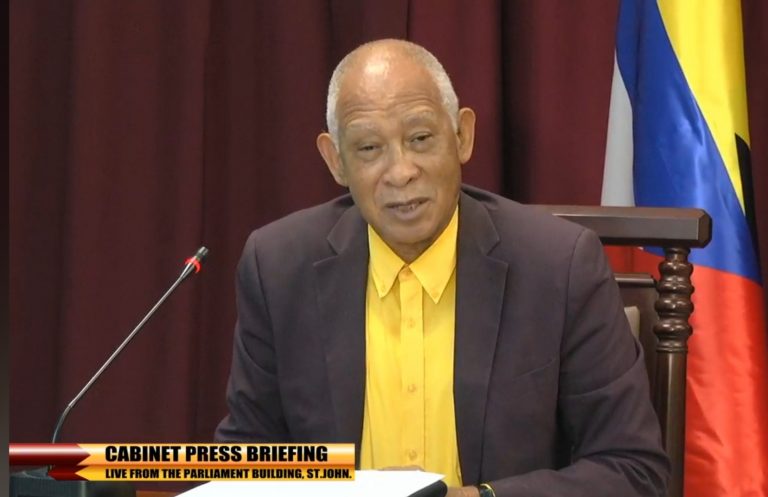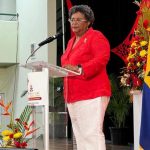Cabinet began its sitting with prayers, conducted by a pastor who addressed the issue of courage, and applauded the bold approach taken by the Prime Minister and the Cabinet in fixing a National Day of Prayer each year, beginning in 2025.
1. The Cabinet finalized its plans for the approach it will take in the removal of derelict houses/properties in communities across St. John’s. On many streets, there are abandoned houses and other buildings that have been left to rot with unwanted vegetation growing in the yards and along the properties’ perimeters, giving the neighbourhood an unsightly look, serving as a place where criminals hide weapons, and as dens for those engaged in the use of illicit drugs. The Attorney General will propose legislation to Parliament that will allow for notices to be published, giving owners an opportunity to step forward to remove the buildings that are a threat to health and security. Following a period of probably 60 days without any response by the owners, an Amenities Order will be issued that will allow the Central Board of Health to remove the derelict building and unwanted vegetation. The cost for so doing will be charged against the property; the taxes owed by the owner of the property will also be computed and added to the liability which the owner will now incur as a debt. When that debt exceeds 50% of the value of the property, the DCA and the Inland Revenue Department will move to recover the debt by the forced sale of the property. Any overage will be set aside in a special account which a Court may award to the owner or the rightful descendant of a deceased property owner.
2. The Cabinet confirmed that Sir Gerald Watt, Speaker of the House of Representatives, will demit office when Parliament ends its session. The Cabinet applauded Sir. Gerald Watt for the wonderful work he has done over the past decade, and that is likely to continue until the end of the annual session. The Cabinet further decided that Senator Osbert Frederick will be voted as Speaker of the House, following Sir Gerald’s resignation.
3. Two principals of the Metropolitan University College of Medicine informed the Cabinet that the school has finally received its accreditation, allowing for many new students from the United States and elsewhere to become accredited students at the University. It is currently located at Newgate Street and can accommodate up to 150 students in that space. Since growth is anticipated in the student enrollment, Metropolitan University is seeking an even bigger space to meet its growth ambitions. It markets itself as the most affordable medical school in CARICOM, with a 5-year programme and a 4-year programme for those who have already earned a Bachelor of Science Degree. Although enrollment in offshore medical schools in the Caribbean has declined in the coming year, Metropolitan University believes that it can cause enrollment to increase by its course offerings and the very high qualifications of its faculty.
4. The Cabinet invited representatives of the Poultry Association to address the issue of their intended increase in the wholesale cost of eggs. The Association publicly declared that heat waves and high ambient temperatures cause the layers to produce fewer eggs than normal; the cost of feed, the Poultry Association reported, had also increased such that the quantum of resources required to feed the chicks to maturity had also increased. They therefore were seeking to increase wholesale prices by $2. The Cabinet members pointed out that climate conditions were the same in neighbouring islands and the cost of feed did not significantly increase there; further, the cost of a dozen eggs was below the amount which customer’s in Antigua and Barbuda now pay. Following intense discussion, it was agreed that: i. A study will be undertaken by an accounting firm within the next 60 days to determine the cost which farmers incur to produce one dozen eggs; that amount was not known by the representatives of the Poultry Association. ii. The Cabinet agreed to the establishment of a Poultry Board made up of five (5) to seven (7) members, drawn from the Ministry of Agriculture, the Poultry Association, an accountant, the Chief Veterinary Officer, and others; they will determine the reasonable cost of poultry products to consumers and not have that decision made by those who produce eggs and grow poultry for meat. iii. The Cabinet also decided that the discount promised on APUA water would be enacted; and the practice of having the Poultry Association import feed to sell to its own members was not in accord with good business practice. The Cabinet was fearful of creating an “egg cartel“ that would exploit consumers.
5. The Cabinet summoned the APUA Telecoms team to its meeting in order to examine further the determining factors in laying its own subsea cable from Puerto Rico to Antigua. The APUA Telecoms team presented the Cabinet with costs and revenues that were forecast over the next thirty years. The Cabinet was informed that costs are likely to exceed incomes, and that a superior alternative might be to contract for space on an existing undersea cable on a long-term basis. No final decision was made.
6. The Cabinet invited the CEO and her team members from the Airport Authority, the Senator from Barbuda, and planners from the Division of Protocol in the Ministry of Foreign Affairs, to plan for the opening of the Burton-Nibbs International Airport in Barbuda. They informed the Cabinet, by a video presentation, of the space where the function will be hosted, the number of aircraft that will be parked on the tarmac that morning, the number of people who are likely to travel from Antigua, and the number of people resident on Barbuda who are likely to attend the opening on October 3rd 2024. Following prayers and the National Anthem—which will be sung by the Barbuda School Choir—a Barbuda Steelpan Orchestra will entertain more than 400 people to include: His Excellency the Governor General, the Prime Minister, members of the Cabinet, members from the Barbuda Council, 200 Barbudans, and the people who will travel over on aircraft and vessels to be a part of the celebration.
7. The Cabinet was informed by the Minister of Education that enrollment at ABICE (Harrison Centre) has increased over the last year. The highest number of students will be learning HVAC (air-conditioning and refrigeration), plumbing, followed by carpentry and masonry. The institution is planning to roll out, in January, a training programme for heavy duty equipment operators, teaching men and women how to operate bulldozers, backhoes, excavators and other earth-moving equipment. A driver’s license is required for entry into the class.










